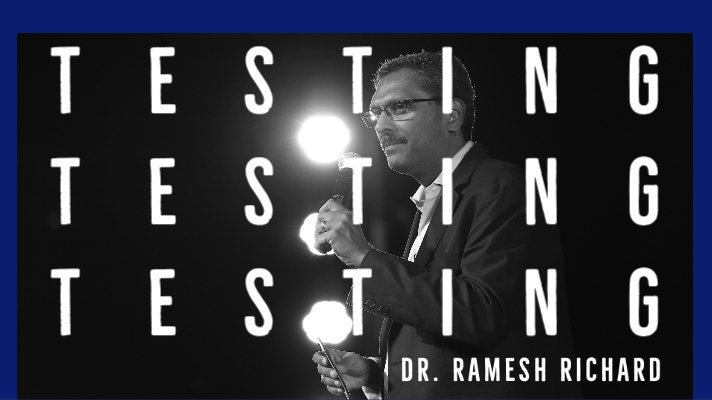
Welcome to the official GProCommission blog!
March 28, 2017
Return to the Word: Stirring Up a Second Reformation through Digital Technology
April 6, 2017The Changing Landscape of Theological Education

by Reuben van Rensburg
The landscape of theological education worldwide is changing rapidly and pastoral trainers need to be alert as they consider further studies, or recommend their trainees begin studying at tertiary level. I will divide this article into three sections, namely international, the African continent and the situation in South Africa.
International
It is clear that throughout the world the institutions which are evangelical and which remain faithful to the Scriptures are generally doing well, whereas those which hold to a liberal view are shrinking. Mary Ann Mueller, in her article Episcopal Seminaries Struggle to Survive, aptly illustrates the point:
Ten accredited theological seminaries and schools for ministry and one, unaccredited Episcopal divinity school, unevenly dot the American Episcopal landscape. An independent study of the state of these seminaries reveals that seventy percent of these institutions have fewer than 100 students.
Their decline follows the bell curve of The Episcopal Church as it experiences loss in members, parish closings and an inability to attract a younger generation of Americans. Many believe that issues like the ordination of women to the priesthood and the episcopacy, the embrace of pansexuality and homosexual marriage now enshrined in canon law, reflect a Church that lacks a distinctive message separate from the prevailing culture.
Similarly, in an interview with OneNewsNow, entitled United Methodist decline due to liberal theology takeover, Mark Tooley, President of the Institute on Religion and Democracy, says that United Methodism has lost members every year since 1965, something he calls “tragic and quite remarkable.” His reason for saying so is that “the seminaries of the denomination had gone liberal by the 1920.” He notes that “by 1965, virtually all the clergy who had any memory of orthodox teaching and theological teaching had retired. And all the clergy in place by the 1960s had been trained in theological liberalism or modernism.”
Tooley says that “liberal theology deemphasizes the supernatural and Christian doctrine”. He further argues that “it certainly doesn’t acknowledge a need for saving souls or evangelism. And of course, if you don’t teach the need to save souls or evangelize, consequently you don’t have evangelism and churches begin to decline.”
Similarly, Chris Hedges in The Suicide of the Liberal Church says,
The wisdom of Tillich and Niebuhr has been borne out in the precipitous decline of the liberal church and the seminaries and divinity schools that train religious scholars and clergy. Faced with shrinking or non-existent endowments, mounting debts, dwindling memberships, a lack of employment for their graduates and growing irrelevancy in a society that has little use for tepid church piety and the smug arrogance that comes with it, these institutions have fallen into physical and moral decay.
He notes further that
Mainline seminaries and divinity schools have been merging or closing, and enrollment at such schools has declined by 24 percent in the last decade. Andover Newton, founded in 1807, plans to reduce its operations and relocate or merge with another institution. Lutheran Theological Seminary at Gettysburg, Pa., and Lutheran Theological Seminary at Philadelphia plan to merge. Union Theological Seminary, where black liberation, feminist, womanist and queer theologies have their roots, appears to be on the verge of selling “air space” to a developer to construct a luxury 35-to-40-story condominium building on its campus. General Theological Seminary in New York City, a school founded in 1817, has sold much of its property to developers, and it ended tenure for its faculty after the professors went out on strike to demand the removal of Dean and President Kurt Dunkle. Dunkle, who epitomizes the infusion of corporatism into the church, worked for many years as a lawyer doing commercial litigation before being ordained.
Reflecting on the decline of the church in Britain, Soper, in his book Evangelical Christianity in the United States and Great Britain, says that the “decline in membership nationwide was especially pronounced in the largest denominations, which were, coincidentally, most closely associated with a liberal theology … The only denominations which experienced a real growth in the 1970’s were most likely to embrace an evangelical theology.”
Secondly, student debt, especially in the US, is a key issue. On graduating with his/her first degree, the average US graduate incurs a debt approaching $30,000. Remembering that many US churches require an MDiv, which incurs a further debt of around $10 000, and that a graduate sometimes marries someone with similar debt, the problem is clear. The first-year pastor, earning perhaps $30 000 per annum, will take many years to repay the debt.
In the UK, the Financial Times says,
Graduates who paid fees of up to £9,000 a year are estimated to have left university with an average of £44,000 of debt, compared with the average £16,200 of debt faced by those who graduated five years earlier…. About 70 per cent of students who left university last year are expected never to finish repaying their loans, according to modelling carried out by the Institute for Fiscal Studies. Instead they will have to make repayments for 30 years before then having the unpaid loan written off.
Africa
In Africa, one of the biggest issues for theological education is the insistence by Kenya and Ghana that any institution wanting to offer an accredited qualification has to be registered as a university. Institutions which previously focused only on theological education have therefore been forced to comply, which essentially means adding other faculties, such as business administration. Inevitably, as potential donors consider their options, they are understandably drawn to the more “popular” faculties, which means that theology begins to take a less important position in the institution. The long-term danger is that institutions may be tempted to remove theology from their offerings simply because it is no longer economically viable.
A second factor is that some of the institutions which initially were very skeptical about distance education, and particularly online education, are themselves now putting their feet into the water, as they realize that this is the way the world is moving. None outside of South Africa has ventured to go completely online, but one could forecast that at some stage that might be a possibility. For the present, it remains an on-the-side addition to their residential offerings. Currently, I am not aware of any institutions outside of South Africa which are solely distance education.
South Africa
There are several significant issues which are currently unfolding in South Africa, the most important of which must surely be the clampdown on theological education providers by the Council on Higher Education (CHE). In October 2015, all theological education providers, including the “bogus” institutions, were called to a meeting at which it became clear that the authorities are intent on raising the bar to the highest level since accreditation for private providers began, and that they are committed to eradicating all forms of malpractice. Such moves are commendable, as long as they do not become unreasonable. As smaller institutions struggle to meet these stringent requirements, some may drop off the bus. Already we have seen one private provider deregistered and two others have voluntarily withdrawn.
As part of the clampdown by the CHE, it appears that universities may need to terminate their partnerships with private institutions. This will, I believe, result in a reduction of faculty members at such universities, as the number of staff allocated to a faculty must surely be dependent on the number of enrolled students and if the partnerships are terminated then the university can no longer claim those students as their own. They will also no longer receive the subsidy the government pays for each student. Except in the case of their graduate programmes, which generate substantial government subsidies, I forecast that universities will soon begin to shrink when it comes to theological education.
We need also to consider developments within certain denominations. There is a group of evangelical Anglicans who are determined to train their priests via institutions not currently used by the denomination and who have already signed a Memorandum of Understanding with one such institution. Candidates from The Assemblies of God and The Apostolic Faith Mission are no longer able to register at their traditional providers, as these are no longer on the list of accredited institutions.
Then there are the “bogus” institutions listed by the Department of Higher Education and Training on its Register of Private Higher Education Institutions. Currently 68 institutions are listed there, of which about a third are theological education providers. In its opening paragraph of this section of the Register, the Department of Higher Education and Training says,
The Department has also filed cases against these “bogus” colleges with the South African Police Services (SAPS) and the Federal Bureau of Investigation (FBI) in the USA. In this regard, Fargo University in the USA now informs students on its website that it is not accepting admissions anymore. The website of both Barkley University and Study for Career Success has been removed. The Department is monitoring these developments closely. The Department will provide case numbers on request. The Department also encourages the public to notify it of “bogus” colleges and/or any form of irregular practices.
To date we are unaware of any theological institutions on that list that have been closed down, but presumably this will happen in due course. Some of those which continue to operate with impunity seem to have taken the attitude that unless someone comes to physically close them down, they will continue. While they do they will also continue to draw some students away from registered institutions, but I sense that already we are seeing that fewer students are willing to attend such institutions. The public awareness of accreditation is growing.
Conclusion
From the evidence it is clear that theological education is experiencing significant change. Those involved in pastoral training need to keep abreast of these developments and make informed decisions when considering further studies or when encouraging those they train to do so.
To do so, consider the following suggestions.
On the international scale, set a Google alert for “theological education.” This will send a link to any such reference as it is posted on the internet. Additionally, subscribing to the newsletter of the International Council for Theological Education (ICETE) and that of any other appropriate organization that deals with this topic would be helpful.
At the continental level, subscribe to the newsletter of your continental structure. For example, those in Asia could subscribe to the Asia Theological Association (ATA) newsletter.
Nationally, there sometimes is an organization to which one can belong. Another option would be to contact the accrediting agencies in each country.
- http://www.virtueonline.org/episcopal-seminaries-struggle-survive
- http://onenewsnow.com/church/2015/01/29/united-methodist-decline-due-to-liberal-theology-takeover
- http://www.truthdig.com/report/item/the_suicide_of_the_liberal_church_20160124
- http://www.usnews.com/news/articles/2014/11/13/average-student-loan-debt-hits-30-000
- http://www.ats.edu/uploads/resources/publications-presentations/documents/how-2015-graduates-are-faring.pdf
- https://www.ft.com/content/55f4a6f6-3eab-11e6-9f2c-36b487ebd80a
- http://www.dhet.gov.za/Registers_DocLib/REGISTER-OF-PRIVATE-HIGHER-EDUCATION-INSTITUTION-January-2017.pdf
About the Author
Dr.  Reuben van Rensburg has been the Principal of the South African Theological Seminary since 2006, having served before that as its Vice-Principal since his appointment in 2000. Starting his career as a teacher in 1975, he served at various levels, including Inspector of Religious Education, until being appointed as the person responsible for policy-development for religious education in state schools. He has attended international conferences and meetings in many countries and has helped the seminary enroll students in over eighty countries.
Reuben van Rensburg has been the Principal of the South African Theological Seminary since 2006, having served before that as its Vice-Principal since his appointment in 2000. Starting his career as a teacher in 1975, he served at various levels, including Inspector of Religious Education, until being appointed as the person responsible for policy-development for religious education in state schools. He has attended international conferences and meetings in many countries and has helped the seminary enroll students in over eighty countries.


